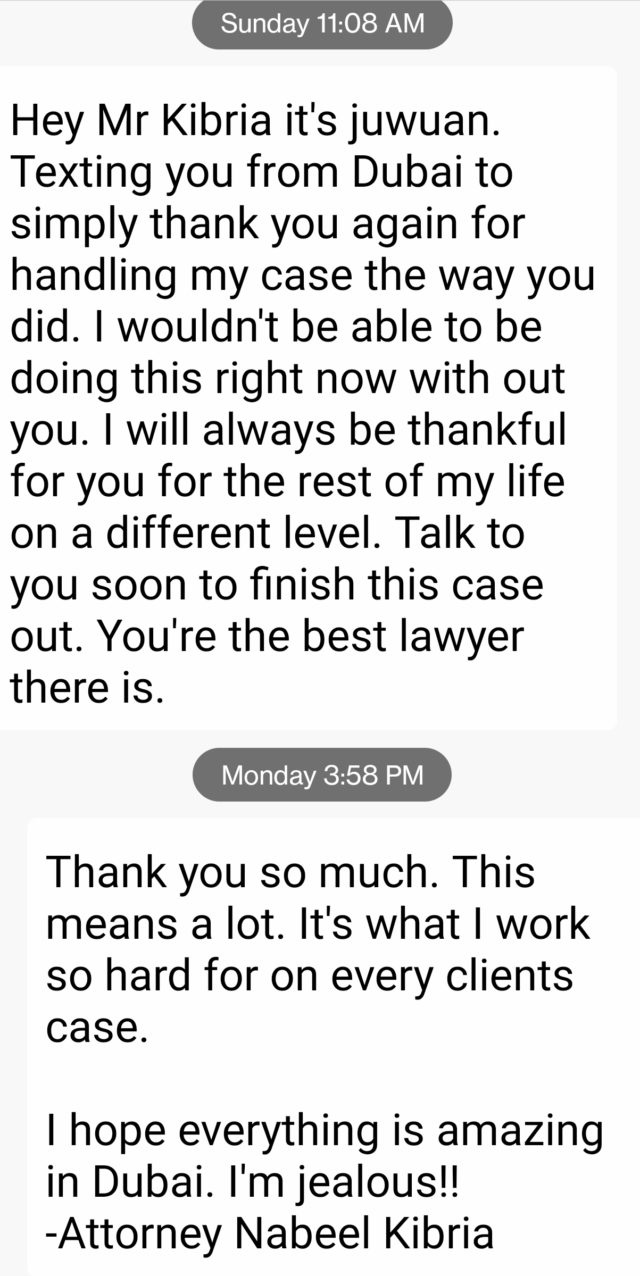DC Drug Lawyer | Possesion & Distribution Criminal Defense
Awards and Accolades
Logo Carousels
There are several drug-related criminal offenses in the District of Columbia. The two major offenses are: Both offenses carry significant penalties upon conviction, including fines, jail time, or both. Depending on the seriousness of the offense and other factors, you may face penalties up to tens of thousands of dollars in fines and several decades in prison. For this reason, if you are facing drug charges in Washington DC, it is vital to contact an expert DC Criminal Defense Attorney or DC Drug Lawyer to defend you. The experienced attorneys at Ervin Kibria Law stand ready to work vigorously on your case and achieve the best result possible. Contact us today to schedule a free consultation. The three terms below are essential to remember as they have a significant bearing on any drug charges in DC. Whether your case involves a “controlled substance” can determine if any penalties apply in the first place. Which “Schedule” the involved drugs fall under and whether they are “narcotic drugs” determines the severity of the disadvantages associated with a drug conviction in DC. “Controlled Substance” Controlled substances are drugs, substances, and immediate precursors of those drugs and substances, as listed within Subchapter II of Chapter 9 of the DC Code. “Schedule I” through “Schedule V” The controlled substances DC drug law covers are grouped into five different tiers—Schedule I through V—based on several factors, including potential for abuse, a risk to public health, and whether there is an acceptable medical use for the particular substance. A Schedule I substance has a high potential for abuse, has no accepted medical use in treatment in the United States or the District of Columbia, or lacks accepted safety for treatment under medical supervision. A Schedule II substance has a high potential for abuse; has currently accepted medical use in treatment in the United States or the District of Columbia, or currently accepted medical use with severe restrictions. Misuse of the substance may lead to severe psychological or physical dependence. A Schedule III substance has a lower potential for abuse than the substances listed in Schedules I and II. However, Schedule III substances are currently accepted for medical use in treatment in the United States or the District of Columbia. Abuse of the substance may lead to moderate or low physical activity dependence or high psychological dependence. A Schedule IV substance has a low potential for abuse relative to substances in Schedule III. The substance currently accepts medical use in treatment in the United States or the District of Columbia. The abuse of the substance may lead to limited physical dependence or psychological dependence relative to the substances in Schedule III. A Schedule V substance has a low potential for abuse relative to the controlled substances listed in Schedule IV; has currently accepted medical use in treatment in the United States or the District of Columbia, and has limited physical dependence or psychological dependence liability relative to the controlled substances listed in Schedule IV. What Schedule the particular drug or drugs involved in your case falls under is one of the most significant factors in determining the maximum penalties you may receive for a conviction. “Narcotic Drug” Under the DC Code, the term “narcotic drug” specifically denotes opium and cocaine, alongside various derivatives from those drugs and substances with similar chemical effects. The term also includes substances with opium or cocaine mixed in. Per DC Code §48–904.01(b), “it is unlawful for any person to knowingly or intentionally possess a controlled substance.” The exceptions to the above are: Simple possession is generally not a felony but a misdemeanor offense. A conviction for simple possession can punish a fine of up to $1,000, jail time up to 180 days, or both. There is a notable exception in the DC Code for simple possession of the drug phencyclidine—commonly known as PCP—in liquid form, which is a felony. A conviction for a felony can punish a fine of up to $12,500, jail time up to 3 years, or both. Leniency for 1st Time Offense of Simple Possession Suppose you are convicted of simple possession, but your criminal record is immaculate of other drug-related offenses. In that case, it is possible to ask for one-time leniency from the court. If the court chooses to grant such leniency, they can put the guilty judgment on hold and instead assign a probation period of up to 1 year, with reasonable conditions. If you do not violate the probation conditions and do as the court instructs, the court will dismiss the proceedings, meaning you will not have a conviction for simple possession on your record. However, the court will still keep a nonpublic record of the dismissal to denote that you already used up your one-time leniency under the law. Per DC Code §48–904.01(a)(1), it is unlawful for any person to knowingly or intentionally manufacture, distribute, or possess, with intent to manufacture or distribute, a controlled substance—unless permitted via a license to do so. Contact Ervin Kibria PLLC today to speak to a Fairfax reckless driving lawyer. Violating this law will involve felony drug charges, and the penalties depend on the Schedule and nature of the controlled substance in question: If the offense involves distribution to minors (18 or younger), the maximum jail time involved doubles. If the offense involves enlisting minors to distribute, additional penalties are added on: The maximum fines and jail time penalties double if the offense involves distributing in a “drug-free zone.” Drug-free zones mainly include areas within 1000 feet of an educational facility, such as an elementary school or college, or a recreational area frequented by minors, such as a playground or video arcade. You can find the full definition of a drug-free zone in DC at DC Code §48–904.07a. In addition, DC Code §48–904.03a makes it illegal to knowingly open or maintain any place to manufacture, distribute, or store for manufacture or distribution of a narcotic or abusive drug. The penalty is a fine of up to $75,000, 25 years of jail time with a 5-year minimum sentence, or both. Under the DC Code, it is not a crime for a person 21 years or older to: Note that marijuana is still a controlled substance when it is sold, offered for sale, or made available for purchase, with the accompanying restrictions. The law does not prevent employers from placing and enforcing restrictions on the possession, consumption, use, display, transfer, distribution, sale, transportation, or growing of marijuana in the workplace. Likewise, landlords have similar powers concerning the real property they own. Additionally, DC Code §48–911.01 prohibits the consumption of marijuana in a public space. Under this section, the definition of “public space” amounts to everywhere except a private residence. Violation DC Code §48–911.01 is a misdemeanor and carries a penalty of up to $500 in fines, 60 days of jail time, or both. Also, possession or transfer without remuneration of marijuana weighing one ounce or less is still a civil violation. The police can impose a $25 civil fine and confiscate all marijuana and paraphernalia insight if police find a violator. If the violator is 18 years old or younger, law enforcement will notify the parent or guardian. Finally, it is important to remember that marijuana is still illegal under federal law. Broadly, drug paraphernalia includes anything used to grow, harvest, process, measure, package, or use drugs. You can find a more detailed definition at DC Code §48–1101(3). Possession of drug paraphernalia in DC is punishable upon conviction by a fine of up to $250, 30 days of jail time, or both. Sale or delivery of drug paraphernalia in DC is punishable upon the first conviction by a fine of up to $1,000, 180 days of jail time, or both. A second or subsequent conviction carries a fine of up to $12,500, 2 years of jail time, or both. There is also a unique offense involving a person 18 years or older selling or delivering drug paraphernalia to a minor at least three years their junior. This particular offense is punishable upon conviction by a fine of up to $25,000, 8 years of jail time, or both. If you or a friend or loved one has trouble with the law and needs help with drug charges in DC, please give us a call. Nabeel Kibria is always standing by to answer any questions or concerns you may have.
CALL 24/7 OR FILL OUT THE FORM BELOW TO DISCUSS YOUR CASE
Featured In
Contact Ervin Kibria Today:
An Introduction to Washington DC Drug Laws
DC Drug Offenses: Important Words to Know
DC Drug Offenses: Possession without Intent to Manufacture or Distribute (Simple Possession)
DC Drug Offenses: Manufacture, Distribution, or Possession with Intent to Manufacture or Distribute
Second of subsequent convictions for the offense doubles the maximum fines and jail time.
Special Marijuana Exception
Drug Paraphernalia
Call Us For a Free Consultation











